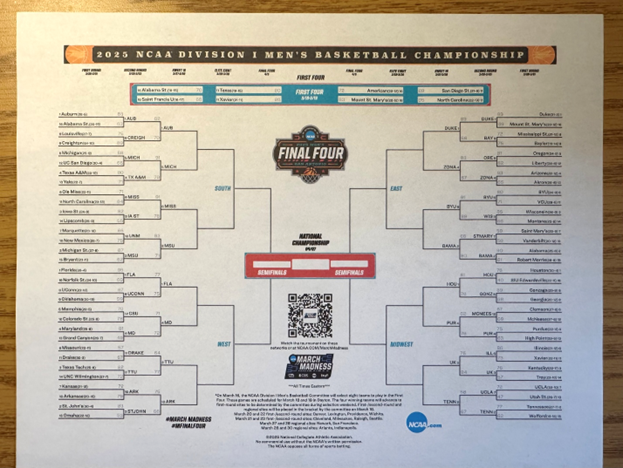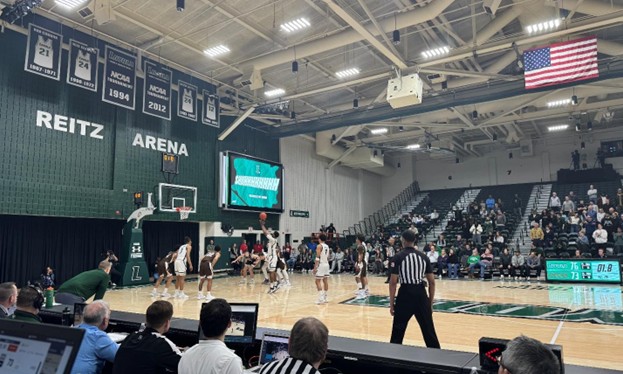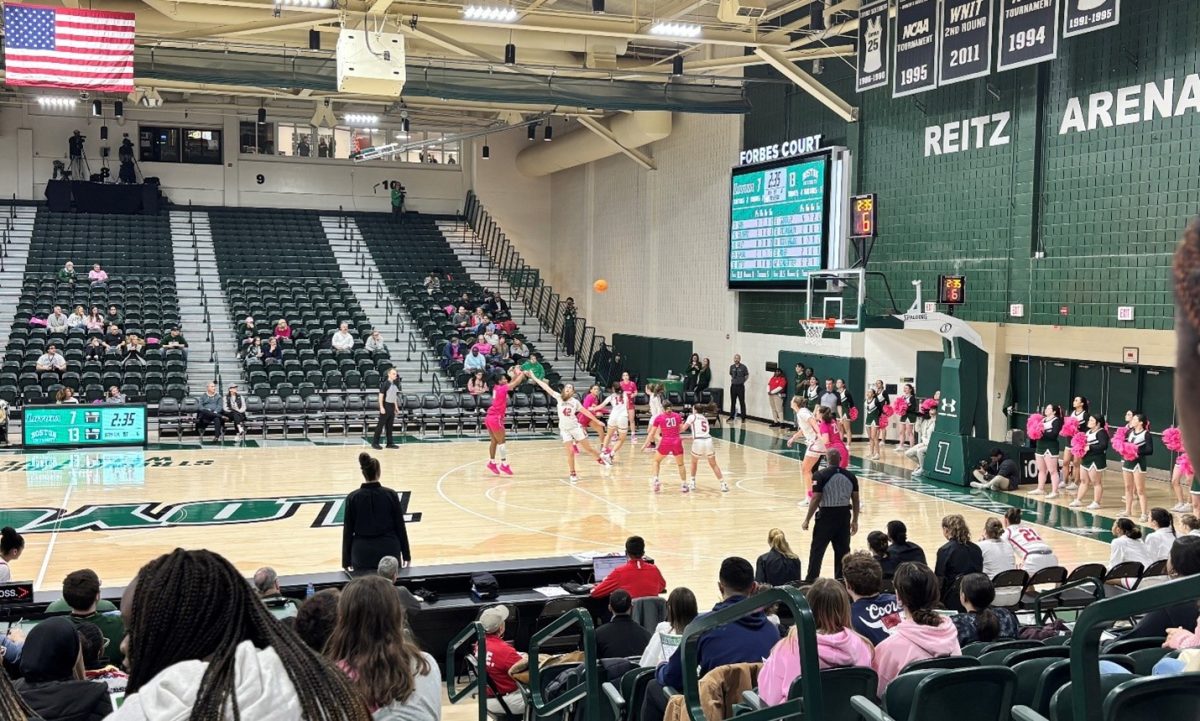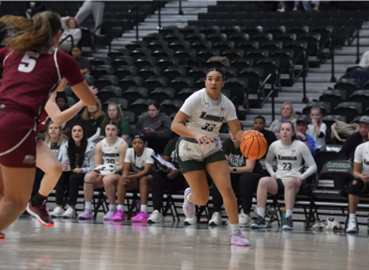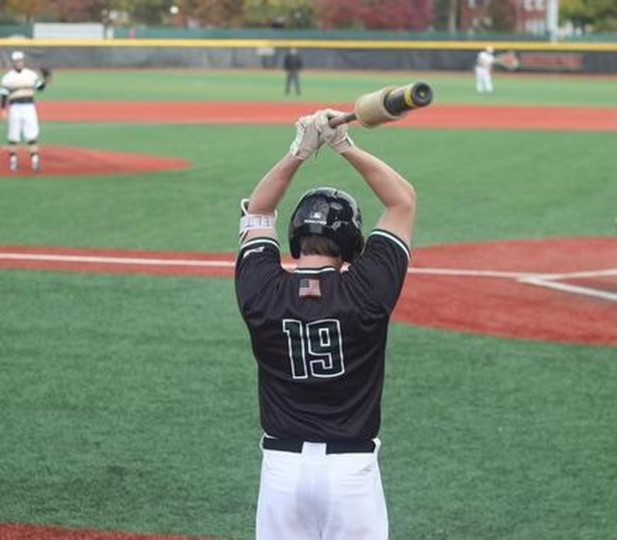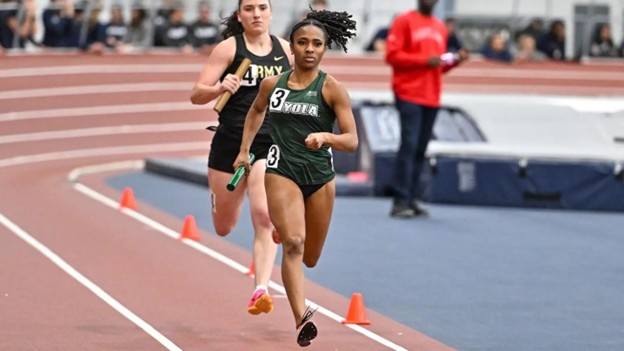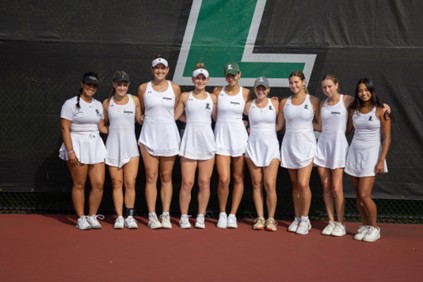It is easy for outsiders to focus on the bright lights and name recognition that seemingly comes with the title of being a Division I athlete. For spectators, basketball can be an enjoyable experience. Lots of people go to local games with friends for entertainment on the weekend. Behind the scenes of that two-hour game on a Saturday night are years of work and sacrifice that is often forgotten about.
The demands of playing a Division I sport are mentally and physically exhausting.
Basketball teams can practice up to 20 hours a week, and that’s just focusing on how long coaches can work with their athletes. Those 20 allotted hours do not include physical therapy, treatments after practice, games, film sessions, individual workouts, and so much more.
Jordan Stiemke ‘27, a guard on the men’s basketball team, highlighted how he is able to stay committed throughout the season.
“I stay motivated to keep playing throughout the year by maintaining my body and mind. I take care of my body by taking advantage of my off days,” Stiemke said.
Koi Sims ‘25, a forward on the women’s basketball team, also has her tricks to stay focused throughout a long season.
“I stay motivated throughout the year by constantly working and staying consistent in the work. Also appreciating and being grateful of the little achievements and success that it takes to get to the end goal,” Sims said.
In the pursuit of personal development, wins, and championships, there are other aspects of these young athletes’ lives that take a hit.
Alexa Therien ‘25, a forward on the Women’s Basketball team, mentioned what she believes is the biggest downside of being a college basketball player. She highlights the countless hours and practices.
“The sacrifices we make such as missing holidays with family and events that we may never get back. Between Thanksgiving, Christmas, and Spring break, our team was only able to be home for about eight days. While local kids can go home, we have five international girls on our team who don’t have that same luxury,” Therien said.
According to Sims, the loyola men’s and women’s basketball teams, along with most other Division I basketball programs throughout the country, spend 6-8 weeks on campus during summer vacation. Those weeks are spent training, doing summer classes, and spending time with their team. Division I athletics is a yearlong commitment, though a sport may only take up one season.
Academics can pose a challenge for any college student. Kelly Ratigan ‘26, a guard for the women’s basketball team, commented on lost class time and how this causes her to feel behind.
“Finding the balance between schoolwork, game prep, eating and finding a good time to get to sleep is much more challenging than I think people know. As much of a blessing as it is to be a student athlete, there are absolutely some challenges that come when trying to prioritize academics,” Ratigan said.
Another everyday struggle for Division I athletes is balancing the demands of performance and competition. The rush of the game can sometimes be overshadowed by the weight of expectations, both internal and external. However, maintaining calmness and concentration in the face of intense competition becomes essential.
Therien said, “I try to leave the pressure outside of my head when playing, but sometimes it does get the best of me. It is very easy to let expectations and external factors affect you as an athlete. What I do is just be where my feet are and control what I can control.”
There are many hidden aspects of the life of college athletes that people don’t know about, but is it worth it? According to Therien, it is. Though the work can be grueling and exhausting, Therien admitted that when you see it turn into results, there is nothing more rewarding.
She also mentioned that her team is living out their dreams that they have had since they were little girls, which makes all that work so much easier.
“It’s all worth it because of the life-long friendships you make. I look at it as your coach selects random girls from all over the country to be your sisters. So at the end of the day, it’s all worth it because not only do I get to play the sport I love, but I also get to do it with my best friends,” Therien said.








































































































